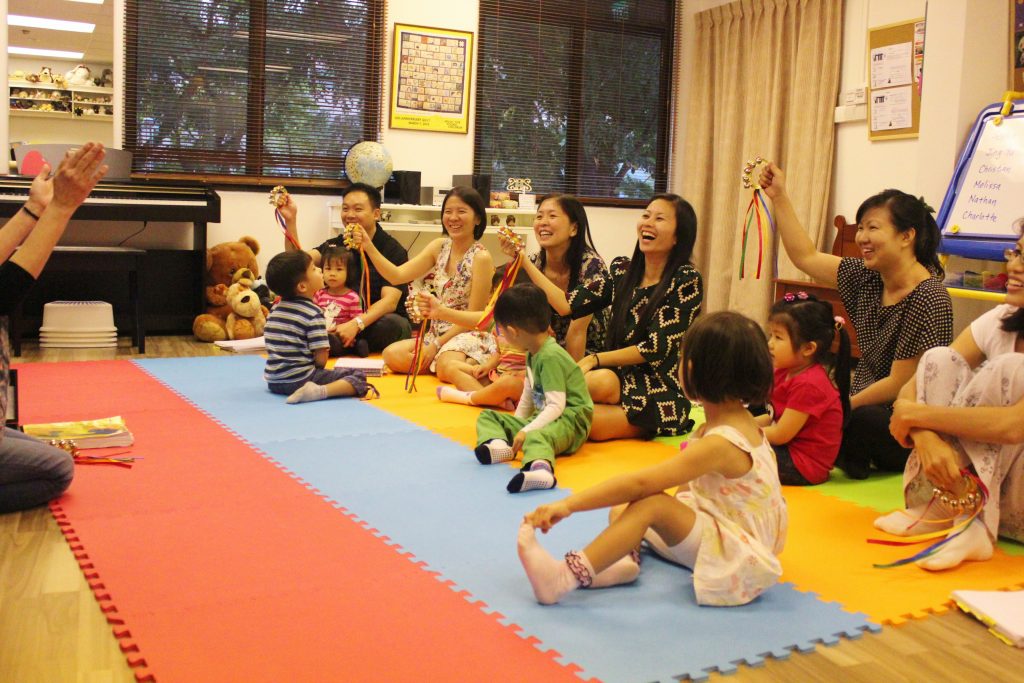Why Parent Participation Makes a Difference
By being present in classes, parents become aware of their child’s learning styles, strengths and interests. Parent participation allows reinforcement of concepts and skill-building at home. The presence of a parent provides stability and security for the child, for whom this may be the first structured experience. Parents believe they should be involved with their children’s homework and that it creates parent-child bonding. This is quality time and parents can help children with daily practice which builds a habit that leads to progress and a feeling of success.

Parents get involved with the learning process adding engagement and fun!
I like the variety in the program, the methods used to make learning fun, the group lesson concept and all the little “extras” our teacher added to encourage the children. Parent involvement is another plus. Sandy Canning, Byesville
Since both my daughters were 5 years old they have been enrolled in Ms. Balodis' program Music for Young Children. As both a professional musician and teacher (I teach composition and orchestration at the post secondary level, and I am Technical Co-ordinator for the Royal Conservatory of Music and the Glenn Gould School), I can testify that Ms. Balodis' program is excellent for young children. My children have learned the fundamentals of musicianship and composition while having fun. I was always amazed that when I asked my children when they started at MYC "What did you learn in day's lesson?" they responded with "Nothing... we just played games." When I queried further I found out that through game playing they learned about pitch, rhythm, melody, dynamics and the basics of composition (thematic development). At a very young age my children not only learned how to compose music and write out their compositions, they learned about the importance of copyrighting one's material... now that is through a music course.
As board member of the Guild of Canadian Film Composers I have had discussions with fellow Canadian composers who have sent their children and grandchildren to Ms. Balodis' MYC program because we all felt that her method of teaching is one of the best ways to teach children music while still maintaining a fun learning environment that emphasized individuality, creativity and exploration.
Gary Atkins, Technology Coordinator RCM / The Glenn Gould School Teacher The Trebas Institute
I have a 7-year-old son who is beginning his second year in the MYC program and his progress is phenomenal. What I like most about the program is that it is NOT just keyboard training. He has improved in math by working on rhythms. His ear is far more developed than mine or his older brother’s who has studied the piano privately for 4 years. He is an associative learner and the stories for the notes and keyboard really let him learn quickly – not to mention being able to actually visualize the notes and their position on the keyboard. He is also developing an appreciation for the great composers by listening to them in class and clapping the rhythm each week at home. He is beginning to see how much more there is to music than just "sounding pretty". He loves puzzles and math and MYC is opening the door for him to see that music is full of math! And best yet, he is having fun. He doesn’t even think of piano lessons or practice as work, but almost a game. Tara Turner, IA
See why Music for Young Children's proven music education program has worked for families for the past 35 years: www.myc.com/about-our-curriculum/

